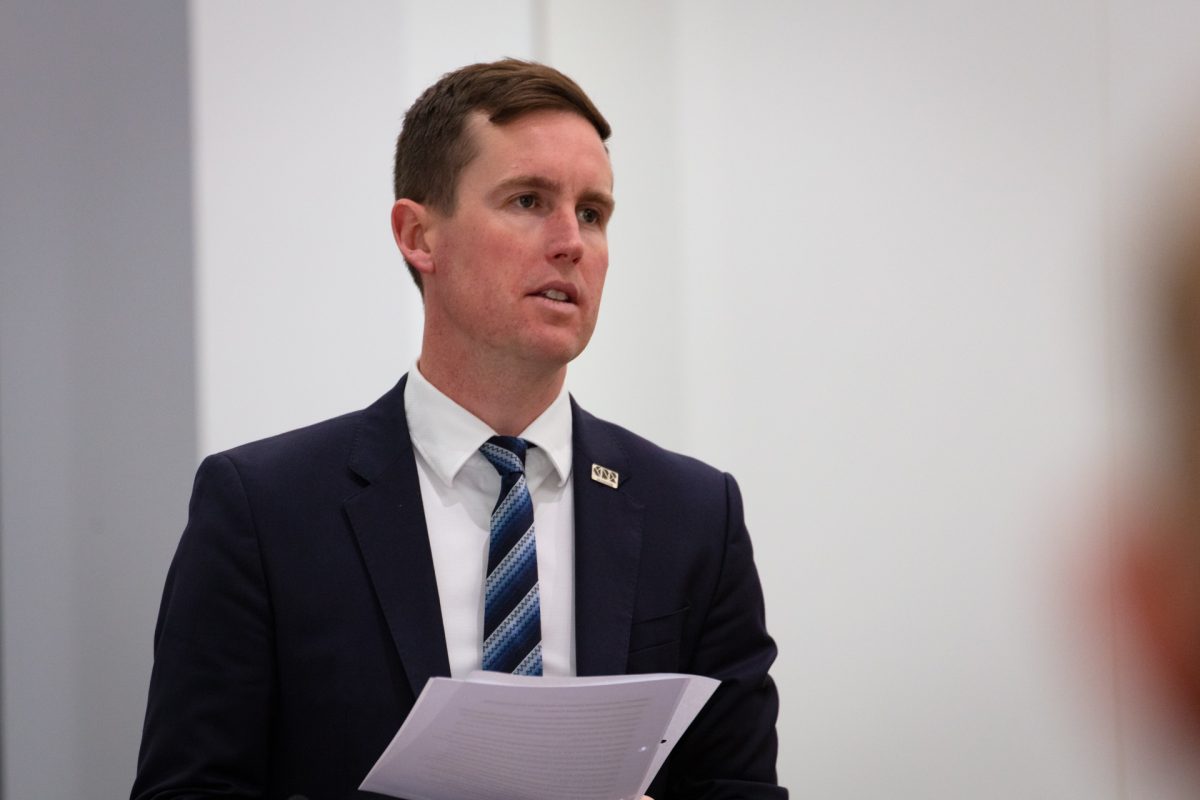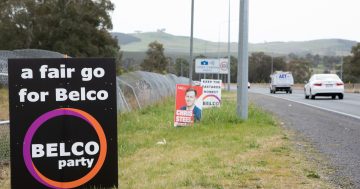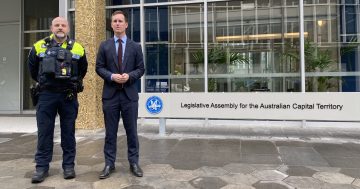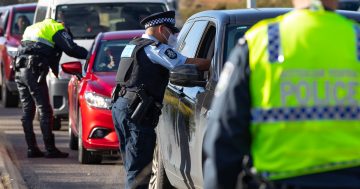
Special Minister of State Chris Steel said donations will be disclosed to the public faster. Photo: Thomas Lucraft.
Political parties will need to disclose donations totalling more than $1000 within seven days of receiving them under new laws passed in the Legislative Assembly on Tuesday (31 October).
The new “real-time” donations rule is part of a number of changes to the electoral laws which the ACT Government says will strengthen the transparency, integrity and accessibility of Territory elections.
The new laws also ban foreign donations in ACT elections in line with Commonwealth legislation.
There is a new offence for parking a vehicle carrying commercial or electoral advertising on areas such as median strips and high-speed roads.
Candidates’ use of roadside corflutes, which has become a vexed issue in the ACT, has also been restrained for road safety and environmental reasons, limiting them to 250 per candidate and entity.
Labor had originally proposed to reduce the political donations threshold to just $100 but retreated after opposition from other parties which argued it would lead to the publishing of membership lists.
Special Minister of State Chris Steel said the new law would help make campaign funding more transparent.
“Real-time donation laws will ensure that substantial donations are disclosed to the public more quickly, while protecting people who are participating in the grassroots political process, such as paying party membership fees,” he said.
A Greens attempt to broaden the definition of a foreign donation failed when Labor and the Canberra Liberals combined to defeat Andrew Braddock’s amendment.
Mr Braddock had wanted the law to be able to capture fossil fuel companies and arms manufacturers.
Mr Steel said the foreign donations ban was well tested, given it is based on Commonwealth law.
“We know it works in both a legal and practical sense,” he said.
Mr Steel said the penalty for the new offence of parking a vehicle displaying political advertising in an inappropriate place was $700 or a court-imposed fine of up to $3200.
“This will deter unsafe parking behaviour for advertising purposes and we will closely monitor the effectiveness of the new offence once it is implemented,” he said.
“These road safety changes will not apply in certain circumstances, such as bumper stickers or roadside advertising of vehicles for sale, either outside a dealership or by private sale.”
Mr Braddock had also attempted to have provisions allowing online voting for citizens overseas dropped, arguing its security could not be guaranteed.




















